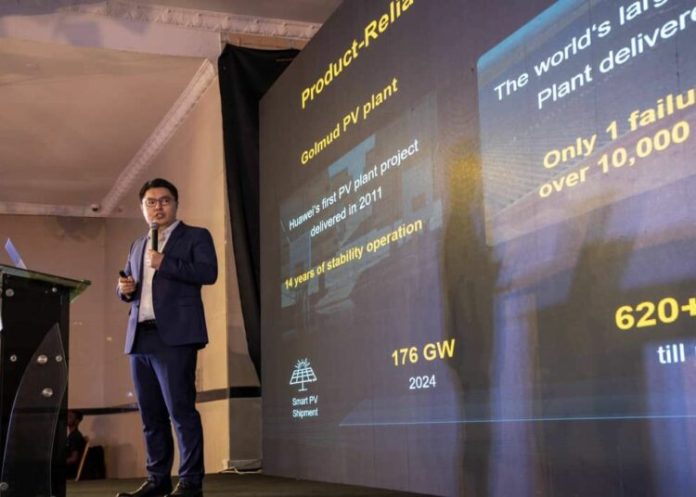Huawei has unveiled its latest energy storage solution, LUNA 2000-215 Series, which targets Nigeria’s commercial and industrial (CNI) market with innovative technology to tackle energy challenges.
The Luna 2000-215 is a hybrid energy system combining liquid and air cooling to optimise efficiency, reduce costs, and extend the system’s lifespan.
According to Huawei, the system achieves 91.3 per cent round-trip efficiency—an industry record—and cuts operational expenses (OPEX) by 50 per cent. It is designed for durability, with batteries retaining over 75 per cent health after 10 years and 70 per cent health after 15 years, exceeding industry standards.
Director of Huawei Digital Power, Cruise Ni, highlighted the benefits of the Luna 2000-215 at its launch in Lagos. He addressed Nigeria’s energy challenges, such as unreliable power supply, high electricity prices, and soaring diesel costs compared to declining solar panel prices. “This product is crucial in helping businesses save money while fostering the adoption of renewable energy,” Ni stated.
Ni projected significant growth in Africa’s energy market, predicting a demand for 4 gigawatts of solar photovoltaic (PV) systems and 3 gigawatt-hours of energy storage by 2025. “This is not just about cost savings,” Ni said. “It’s about creating sustainable, long-term business value and revolutionising energy consumption.”
The Luna 2000-215 is equipped with a smart thermal router that adjusts cooling modes based on ambient temperature. Liquid cooling is utilised in high heat, while air cooling is used under normal conditions.
Hence, the system also features a dehumidification mode that repurposes waste heat from the power converter for efficient temperature regulation.
Meanwhile, in its commitment to local development, Huawei emphasised its dedication to local growth since its entry into Nigeria in 1999 just as the company operates warehouses, innovation centres, and support teams in Lagos and Abuja, ensuring quick response times and providing 24/7 online service.
Cruise Ni also underscored Huawei’s contributions to talent development, job creation, and tax revenue in Nigeria.
“We are not just present in Nigeria; we are deeply committed to supporting its growth and development,” Ni said. He assured that Huawei’s renewable energy solutions offer over 20 years of reliable service for homes and industries, building a greener and more sustainable future for the country.
Solution Manager, Digital Power Business Unit, Huawei Nigeria, Jeremiah Ejiroghene Aminode said, “This all-in-one system provides end-to-end value, allowing businesses to maximise their use of renewables while minimising reliance on costly generators,” Aminade said during the launch event. He emphasised that the Luna 2215 would enable businesses to lower energy costs per kilowatt-hour, enhancing both sustainability and profitability.
The launch underscored Huawei’s commitment to tackling Nigeria’s energy issues, including the rising cost of power and unstable grid infrastructure. “This product is crucial in helping businesses save money while fostering the adoption of renewable energy,” Aminade added.
Positioned as a forward-thinking solution, the Luna 2215 combines hybrid air and liquid-cooling technology to deliver optimised performance. As businesses strive for a sustainable future, Aminade expressed confidence in the system’s ability to drive meaningful change.
“The hybrid air and liquid-cooled system is not just a product; it’s a solution that empowers businesses to invest in renewable energy confidently,” Aminade concluded.
Head of ICT at the Federal Fire Service, Esan Oladimeji, emphasised that the product prioritises safety, he stressed the importance of vigilance in Nigeria’s solar energy sector. “Safety is everyone’s business. Young, old, male, female, it’s a responsibility we all share,” he said.
Oladimeji warned about fire hazards stemming from faulty solar panel installations and substandard equipment, noting that similar incidents have been reported globally. He urged stakeholders to prioritise proper installations and high-quality materials to mitigate risks.
“Fire doesn’t negotiate; it takes everything. Ensuring a safe environment and industry is essential to saving lives, properties, and resources,” Oladimeji stated.






